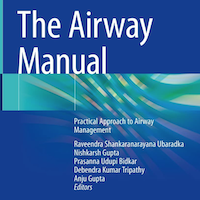Stories Category: Intensive Care

Higher Dose Antibiotic Shown Safe in TB Patients Likely More Effective in Treating Deadliest Form of TB
A Johns Hopkins Children’s Center-led study in animals suggests that high doses of a widely used antibiotic called rifampin may safely treat and reduce the duration of treatment for the deadliest form of tuberculosis that... read more

Acute Kidney Injury Related to Intoxication From Synthetic Cannabis
Acute kidney injury (AKI) occurs infrequently in young patients and often raises concern for irreversible or deadly etiologies. However, AKI related to synthetic marijuana, colloquially known as K2, is an increasingly common... read more

Risks and Burdens of Incident Diabetes in Long COVID
In the post-acute phase, we report increased risks and 12-month burdens of incident diabetes and antihyperglycaemic use in people with COVID-19 compared with a contemporary control group of people who were enrolled during... read more

Sepsis is scurvy? Vitamin C, Thiamine, and Steroids
I have avoided commenting on vitamin C for sepsis, because commentary seemed rather unnecessary. The hype was obviously ridiculous. The chances of it helping were clearly low. The evidence of benefit was negligible. Others... read more

Reducing Mortality in Acute Kidney Injury
This book describes the techniques, strategies, and drugs that have been demonstrated by at least one paper published in a peer-reviewed journal to significantly influence survival in patients with or at risk for acute kidney... read more

HFNO Alone or Alternating with NIV in ARF Patients
In critically ill immunocompromised patients with acute respiratory failure (ARF), the mortality rate did not differ between HFNO alone and non-invasive ventilation (NIV) alternating with high-flow nasal oxygen (HFNO). However,... read more

Bedside Procedures for the Intensivist
Bedside Procedures for the Intensivist delivers practical tips and clear, step-by-step instruction on the most common procedures in the ICU. The convenient and portable handbook focuses on ultrasound-guided techniques, including... read more

Plasma biomarkers of inflammation, coagulation, and brain injury as predictors of delirium duration in older hospitalized patients
Plasma Biomarkers of systemic inflammation and endothelial activation are associated with ED delirium duration in older ED patients without dementia. A total of 156 patients were enrolled. IL-6 (POR = 1.59, 95%CI: 1.09–2.32)... read more

Hemodynamic Monitoring (Lessons from the ICU)
This book, part of the European Society of Intensive Care Medicine textbook series, teaches readers how to use hemodynamic monitoring, an essential skill for today's intensivists. It offers a valuable guide for beginners,... read more

The Family in Preventing Delirium in the ICU
Extended visits, development of family-mediated activities, and redirection are non-pharmacological strategies that reduce the incidence of delirium in the ICU and offer multiple benefits to the patient and family/caregiver. The... read more

Multi-Organ Point-Of-Care Ultrasound in AKI
Acute kidney injury (AKI) is a clinical syndrome caused by a multitude of hemodynamic, toxic, and structural insults to the kidney, and portends worse patient outcomes. Despite careful history taking, physical examination,... read more

Epinephrine vs. Norepinephrine in Cardiac Arrest Patients with Post-resuscitation Shock
Among patients with post-resuscitation shock after out-of-hospital cardiac arrest, use of epinephrine was associated with higher all-cause and cardiovascular-specific mortality, compared with norepinephrine infusion. Until... read more

Septic Shock and Vasopressor Initiation: Why Earlier is Better
An overview of vasopressor management, current evidence and when to initiate vasopressor therapy for best possible patient outcome. Vasopressor management is a cornerstone in the haemodynamic management of septic shock... read more

ARDS Readmissions: A nationwide Cross-sectional Analysis of Epidemiology
Thirty-day readmission occurred in 18.4% of patients with acute respiratory distress syndrome (ARDS) in this sample, and early readmission is strongly associated with increased mortality compared to late readmission. Further... read more

Casemix, management, and mortality of patients receiving emergency neurosurgery for TBI
Patients receiving emergency neurosurgery for traumatic brain injury (TBI) differed considerably in their admission characteristics and management across human development settings. Level of human development was associated... read more

ICM White Paper Proposes Infection Prevention Roadmap Integrating AMR and Sepsis
The COVID-19 pandemic has put a spotlight on the devastating global health and societal implications an infection can have when there are no preventative interventions or treatment options available. Many countries and most... read more

Comparative analysis of the risks of hospitalisation and death associated with COVID-19 variants in England
The risk of severe outcomes following SARS-CoV-2 infection is substantially lower for omicron than for delta, with higher reductions for more severe endpoints and significant variation with age. Underlying the observed risks... read more








